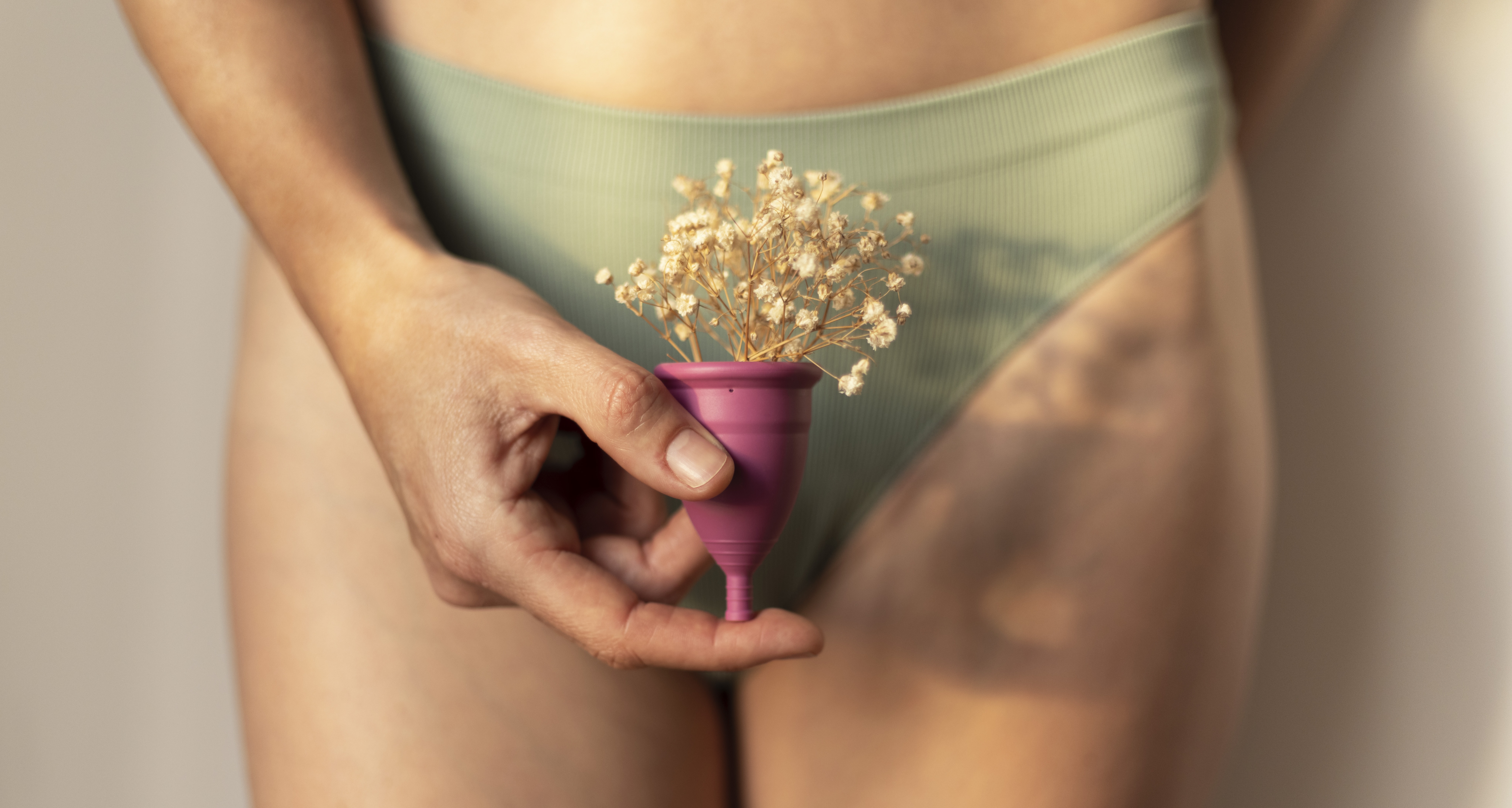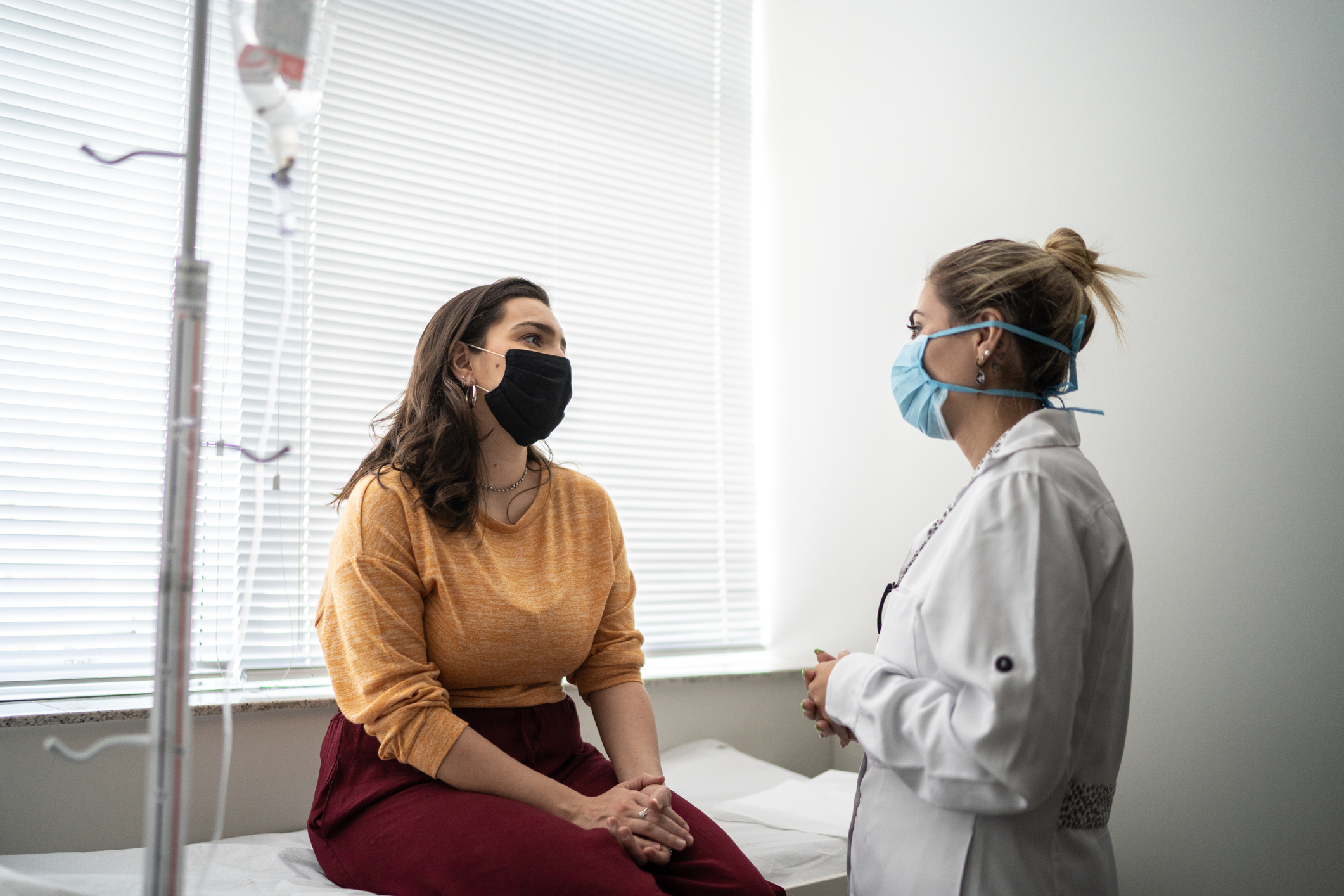8 things gynecologists want you to know
Have questions for gynecologists? You're not the only one! Here's what docs want their patients to know


From pleasure, periods and peeing to STIs, itching and dryness, those with a vagina know that everything from the good to the downright ugly can occur down there.
However, even though half of the world’s population possesses this form of genitalia, many still feel embarrassed to seek help when theirs feels or looks a bit awry. In fact, according to an Ovarian Cancer Action study, 57% of us would rather search for solutions on Dr. Google than speak to a qualified medical professional—which can lead to confusion, misinformation and incorrect self-diagnosis.
Nobody should be doom-scrolling, especially when it comes to our well-being. So we asked four leading gynecologists to share essential facts about vaginal health they want you to know, from period pains to lube questions and everything in between.
Eight things gynecologists want you to know:

1. Fancy washes do more harm than good
While you might think you’re doing your bits a favor by using these, STOP. “The vagina, and in fact the entire reproductive system, is like a self-cleaning oven. It certainly does not need a daily, monthly or annual clean out!” states Dr. Nitu Bajekal, MD FRCOG, Senior Consultant OB-GYN and Co-Author of Living PCOS Free.
Using feminine wipes and perfumed toiletries can disturb the balance of good bacteria in the vagina, explains Bajekal, in turn, “allowing less beneficial bacteria and yeast to take hold, causing infections and offensive discharge.” Um, no thanks!
(And if you're wondering, "Are bath bombs safe for your vagina?" add the bathtime goodies to the NO list!)
2. Plan B pill doesn't harm your long-term fertility
So even if you don’t want a Mini You right now, taking a morning-after pill like Plan B won’t prevent you from having a child in the future.
“No matter how often you take it, the morning-after pill (and birth control, too) does not impact future fertility,” reveals Dr. Jennifer Lincoln, MD, OB-GYN and Reproductive Health Educator. “This is a very common myth, despite us having studies to prove it is completely false.”
3. Your choice of lubricant matters
Whether you want to moisten things up for pleasure or ease dryness, check what your lubricant is made of before slicking it on.
Water-based formulations are best, says Dr. Kecia Gaither, MD, MPH, FACOG, double board-certified in OB/GYN and Maternal Fetal Medicine, and Director of Perinatal Services at NYC Health + Hospitals/Lincoln in the Bronx.
This means “without flavor, perfume, alcohol, or glycerin added. Oil-based lubricants can cause defects in condoms, while perfume and alcohol can irritate tissues causing dermatitis,” she explains. “Glycerin is a sugar by-product and can be a food source for certain bacteria, so it's best avoided.”
4. It's totally normal to experience discharge
Discharge is your vagina’s way of keeping itself healthy and clean—it’s just a case of knowing what looks (and smells) a-ok.
“The type of vaginal discharge you see can vary depending on where you are in your menstrual cycle. Clear or milky discharge can be a sign your vagina is healthy,” explains Dr. Shree Datta, an in-house gynecologist at intimate wellbeing brand INTIMA.
However, if it’s green or yellow in color, clumpy or frothy in texture, is accompanied by pain during sex or urination, or is persistent, “consult your doctor or gynecologist to make sure you don't have an infection,” the doc says.

5. Heavy or painful periods should be checked out
While many of us will experience cramps or the odd awkward overflow, speak to your doctor if your periods are regularly heavy or painful (or both) and interfere with your day-to-day activities.
Along with polycystic ovary syndrome, “conditions such as endometriosis, fibroids, uterine polyps, and pelvic inflammatory disease can cause heavy and/or painful periods,” shares Bajekal. The good news? “Highly effective medical help is available after a thorough discussion with the doctor,” she adds.
6. Your tampon *can't* get lost inside you
“The vagina isn’t a tunnel,” states Gaither. However, “tampons can become lodged in the upper portion of the vagina near the cervix, making it difficult at times for removal.”
Don’t panic: take a deep breath, relax, and try again. If your tampon is still not playing ball, visit your healthcare provider ASAP and they’ll be able to remove it for you.
7. Periods aren't always like clockwork
It can be easy to forget our bodies aren’t machines, so if Aunt Flow suddenly goes off schedule, don’t automatically assume something awful is happening. “Most women experience a period every 3-5 weeks, and it's normal to have some fluctuation in how often you have a period,” reveals Datta.
So what’s going on? Everything from stress, excessive exercise, change in weight, and conditions such as polycystic ovary syndrome can factor in, she says. “Consult your doctor if your periods become repeatedly more frequent or spaced out, or if you repeatedly miss them.”
8. It's okay to seek professional help
If you’re worried your concern is too trivial or that it’s too embarrassing to discuss, think again.
“There is no shame in having questions about what's ‘normal’ and what's ‘not’ down there,” asserts Lincoln. “You can ask us all the questions you have, nothing is off-limits, and nothing shocks us. Truly!”
Chantelle Pattemore is a freelance writer based in London, UK. With a primary focus on lifestyle, health, beauty, food and fitness, her work has been published in outlets including Greatist, Shondaland, Women's Health, Reader's Digest, Stylist and Hello Giggles. Away from her computer, she enjoys reading, going for long walks, visiting new countries and drinking too many matcha lattes.
